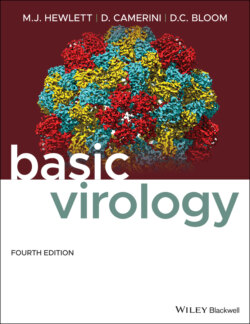Читать книгу Basic Virology - Martinez J. Hewlett - Страница 20
The history of virology
ОглавлениеThe historic reason for the discovery and characterization of viruses, and a continuing major reason for their detailed study, involve the desire to understand and control the diseases and attending degrees of economic and individual distress caused by them. As studies progressed, it became clear that there were many other important reasons for the study of viruses and their replication.
Since viruses are parasitic on the molecular processes of gene expression and its regulation in the host cell, an understanding of viral genomes and virus replication provides basic information concerning cellular processes in general.
The whole development of molecular biology and molecular genetics is largely based on the deliberate choice of some insightful pioneers of “pure” biological research to study the replication and genetics of viruses that replicate in bacteria: the bacteriophages. (Such researchers include Max Delbrück, Salvadore Luria, Joshua Lederberg, Gunther Stent, Seymour Benzer, André Lwoff, François Jacob, Jacques Monod, and many others.)
The bacterial viruses (bacteriophages) were discovered through their ability to destroy human enteric bacteria such as Escherichia coli, but they had no clear relevance to human disease. It is only in retrospect that the grand unity of biological processes, from the simplest to the most complex, can be seen as mirrored in replication of viruses and the cells they infect.
The biological insights offered by the study of viruses have led to important developments in biomedical technology and promise to lead to even more dramatic developments and tools. For example, when infecting an individual, viruses target specific tissues. The resulting specific signs and symptoms, as already noted, define their pathogenicity. The normal human, like all vertebrates, can mount a defined and profound response to virus infections. This response often leads to partial or complete immunity to reinfection. The study of these processes was instrumental to gaining an increasingly clear understanding of the immune response and the precise molecular nature of cell–cell signaling pathways. It also provided therapeutic and preventive strategies against specific virus‐caused disease. The study of virology has and will continue to provide strategies for the palliative treatment of metabolic and genetic diseases not only in humans, but also in other economically and aesthetically important animal and plant populations.
